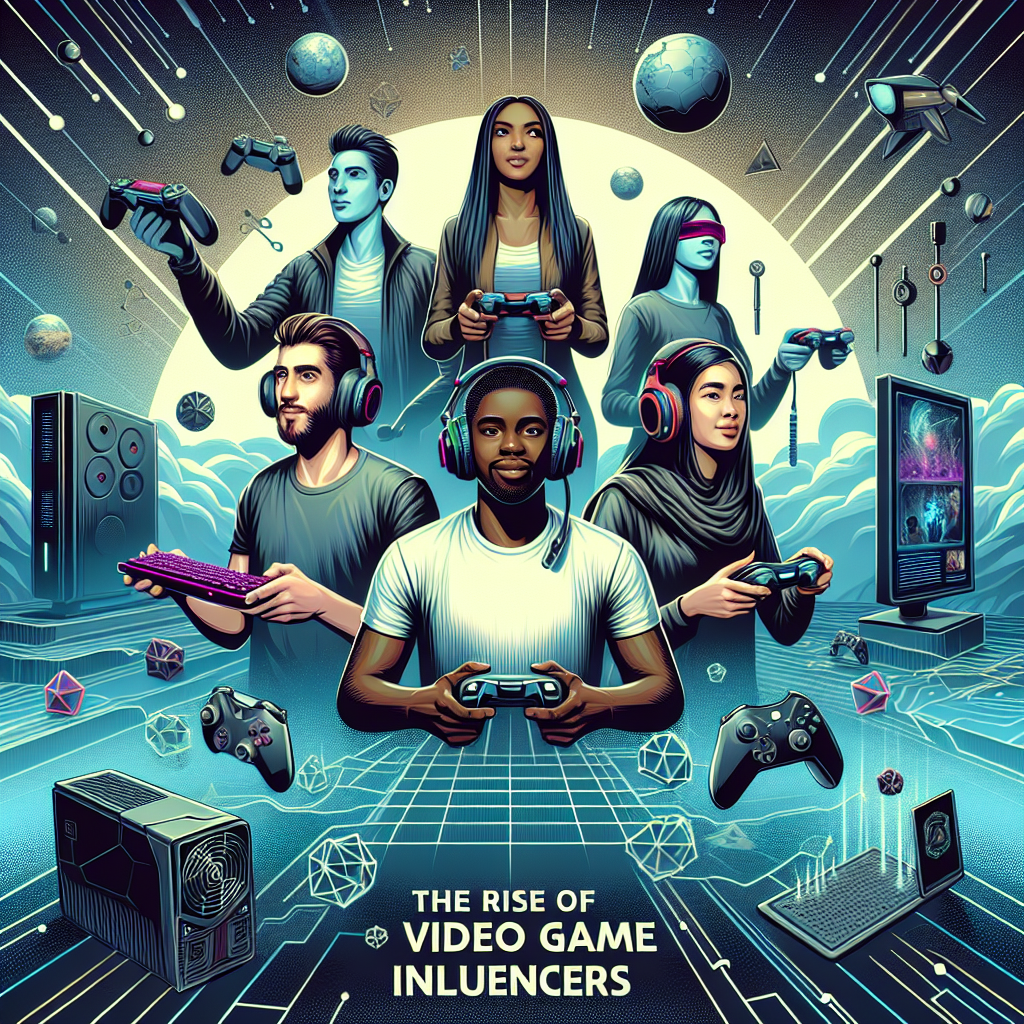The Rise of Gaming Influencers: Key Players Shaping the Future of Gaming
In recent years, the gaming industry has witnessed a transformation unlike any other, catalyzed by the rapid rise of influencers who dominate social media platforms and streaming services. These gaming influencers, ranging from professional players to content creators, have not only changed how games are marketed but have also fundamentally altered the landscape of gaming culture itself. This article explores this phenomenon, highlighting key players and the implications for the future of gaming.
The Evolving Role of Gaming Influencers
Gaming influencers are individuals who leverage their online presence to engage with audiences around video games. They typically operate on platforms like Twitch, YouTube, TikTok, and Instagram, where they stream gameplay, provide commentary, create informative guides, and engage with fans through various other forms of content. Their influence is extensive; they cultivate massive followings that can dictate trends, drive sales, and shape community opinions.
Notable Players in the Gaming Influencer Space
-
Ninja (Tyler Blevins): Perhaps the most recognizable name in gaming, Ninja rose to fame through his Fortnite streams. His charismatic personality and exceptional skills transformed him from a competitive gamer to a cultural icon. Ninja’s cross-platform presence and collaborations with celebrities have shown how gaming influencers can bridge the gap between gaming and mainstream entertainment.
-
Pokimane (Imane Anys): One of the leading female figures in gaming, Pokimane has built a successful career as a streamer and content creator. She’s not only known for her gaming skills but also for her engaging personality and advocacy for women in gaming. Her impact extends beyond gameplay, as she promotes mental health awareness and community engagement.
-
MrBeast (Jimmy Donaldson): Though not exclusively a gaming influencer, MrBeast has integrated gaming into his explosive content strategy. Known for his philanthropy and over-the-top challenges, his gaming videos have amassed millions of views, demonstrating the crossover appeal that gaming influencers can have on broader entertainment spheres.
-
Markiplier (Mark Fischbach): A pioneer in the gaming YouTube community, Markiplier’s comedic approach to gameplay and heartfelt interactions with his fans have garnered him a loyal following. His charity streams have raised millions, showcasing the power of gaming influencers in mobilizing communities for good causes.
- FaZe Clan: This esports organization has transformed into a lifestyle brand, representing a collective of gamers, influencers, and content creators. FaZe Clan has leveraged the power of its individual influencers to redefine what it means to be a gamer in the digital age, blurring the lines between athletes, entertainers, and influencers.
The Economic Implications
The rise of gaming influencers has significant economic ramifications for the gaming industry. Brands are increasingly turning to influencers for marketing their products, relying on their authenticity and reach to connect with audiences. In-game promotions, sponsored content, and product placements have become common practices, with influencer-driven marketing projected to grow exponentially.
In 2023, the influencer marketing industry is expected to reach $16 billion globally, with a significant portion stemming from gaming. Companies that once relied solely on traditional advertising are now investing heavily in influencer partnerships to target younger demographics more effectively.
The Cultural Shift in Gaming
Gaming influencers also play a crucial role in shaping gaming culture. Through their streams and content, they contribute to a sense of community, providing spaces for fans to connect, share their passions, and form friendships. The interaction between influencers and their audiences fosters a participatory culture, wherein fans feel empowered to engage, create, and influence the discourse surrounding gaming.
Moreover, the visibility provided by influencers for niche genres and indie games has diversified the gaming landscape. Titles that may have gone unnoticed in traditional marketing channels often find success through influencer endorsements, leading to a more varied and rich gaming ecosystem.
Challenges and Controversies
However, the rise of gaming influencers does not come without challenges. Issues such as toxicity, mental health struggles, and the pressure to maintain relevance can weigh heavily on these individuals. Additionally, concerns about authenticity and sponsored content can create skepticism among viewers. The consequences of missteps can lead to backlash, underscoring the importance of responsibility and transparency within the influencer realm.
Looking Ahead: What the Future Holds
As the gaming industry continues to evolve, the influence of these key players will likely grow. Emerging technologies such as virtual reality, the metaverse, and AI-driven content creation may further reshape how influencers engage with their audiences. Moreover, as gaming becomes increasingly integrated into mainstream culture, diverse voices from various backgrounds will continue to emerge, enriching the community and driving innovation.
In conclusion, the rise of gaming influencers marks a significant shift in an industry that continually evolves. They serve as both creators and curators, shaping how games are consumed and experienced. As we look toward the future, one thing is clear: gaming influencers are not just a trend; they are a foundational element of the gaming world, set to redefine the landscape for years to come.




